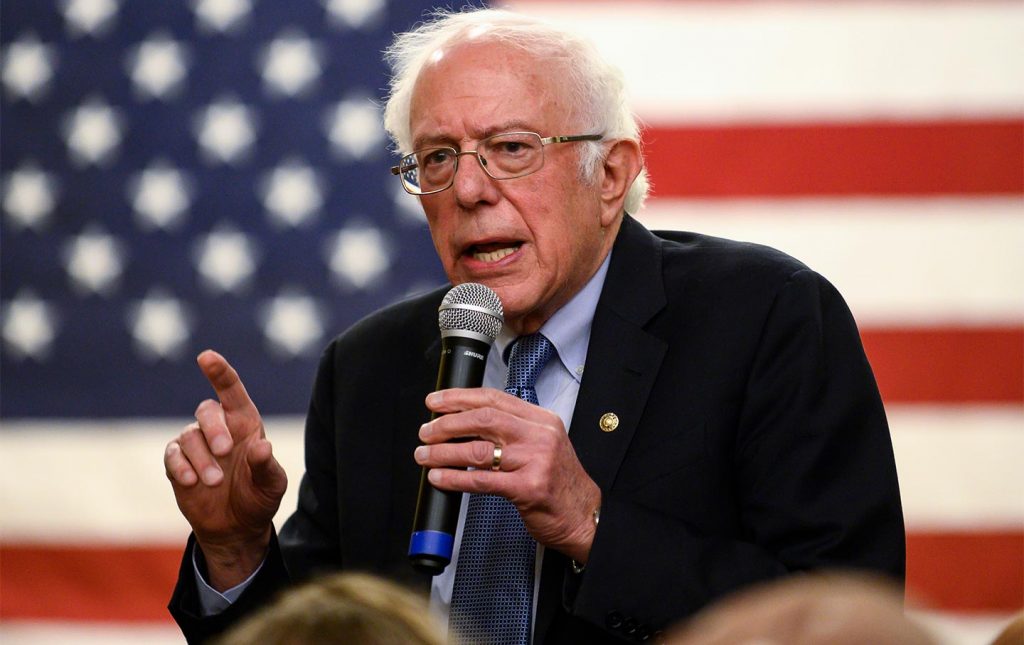In a desperate attempt to find a cure to coronavirus, the United States government has pumped in more than $2 billion to develop a vaccine for the pandemic.
In his Twitter handle on Friday, Bernie Sanders, the defeated US Democratic Party presidential aspirant, said the government sent $1.2 billion to AstraZeneca, $483 million to Moderna, $500 million to Johnson & Johnson and $30 million to Sanofi.
“This is what our government is paying to develop a COVID-19 vaccine. Once a vaccine is approved by the FDA, it must be available to all for free. No profiteering,” Sanders hoped.
AstraZeneca has agreed to initially supply at least 400 million doses of Oxford University’s coronavirus vaccine and secured total manufacturing of the vaccine.
The development programme will include a Phase III clinical trial with 30,000 people, as well as a trial in children.
Moderna Inc. claimed that its shares rose as much as 21 per cent after the U.S. government agreed to pay as much as $483 million for the vaccine.
Meanwhile, the United States has secured almost a third of the first one billion doses planned for AstraZeneca’s experimental COVID-19 vaccine by pledging up to $1.2 billion, as world powers scramble for medicines to get their economies back to work.
While not proven to be effective against the coronavirus, vaccines are seen by world leaders as the only real way to restart their stalled economies, and even to get an edge over global competitors.
After President Donald Trump demanded a vaccine, the U.S. Department of Health and Human Services agreed to provide up to $1.2 billion to accelerate British drugmaker AstraZeneca’s vaccine development and secure 300 million doses for the United States.
“This contract with AstraZeneca is a major milestone in Operation Warp Speed’s work toward a safe, effective, widely available vaccine by 2021,” U.S. Health Secretary Alex Azar said.
The vaccine, previously known as ChAdOx1 nCoV-19 and now as AZD1222, was developed by the University of Oxford and licensed to AstraZeneca. Immunity to the new coronavirus is uncertain and so the use of vaccines unclear.
The U.S. deal allows a late-stage — Phase III — clinical trial of the vaccine with 30,000 people in the United States.
Cambridge, England-based AstraZeneca said it had concluded agreements for at least 400 million doses of the vaccine and secured manufacturing capacity for 1 billion doses, with first deliveries due to begin in September.
Now the most valuable company on Britain’s blue-chip FTSE 100 Index, it has already agreed to deliver 100 million doses to people in Britain, with 30 million as soon as September. Ministers have promised Britain will get first access to the vaccine.
Vaccine scramble
With leaders across the world surveying some of the worst economic destruction since at least World War Two, and the deaths of more than 327,000, many are scrambling for a vaccine.
The U.S. government has already struck deals to support vaccine development with Johnson & Johnson (J&J), Moderna and Sanofi, sparking fears the richest countries will be able to protect their citizens first.
Sanofi’s chief angered the French government earlier this month when he said vaccine doses produced in the United States could go to US patients first, given the country had supported the research financially.
“We have a lot of things happening on the vaccine front or the therapeutic front,” Trump told reporters at the White House when asked about the AstraZenca announcement. “You’re going to have a lot of big announcements over the next week or two” on therapeutics.
AstraZeneca said it was in talks with governments and partners around the world — such as the Serum Institute of India — to increase access and production, and is speaking to various organizations on the fair allocation and distribution of the vaccine.
“We would like to thank the U.S. and UK governments for their substantial support to accelerate the development and production of the vaccine,” AstraZeneca Chief Executive Pascal Soriot said.
The Serum Institute of India, the world’s largest maker of vaccines by volume, has dedicated one of its facilities with a capacity to produce up to 400 million doses annually to producing the Oxford vaccine.
“We are scaling up on a conservative basis of about 4 to 5 million doses a month to begin with,” Chief Executive Adar Poonawalla told Reuters, adding the company was in discussions with AstraZeneca.

